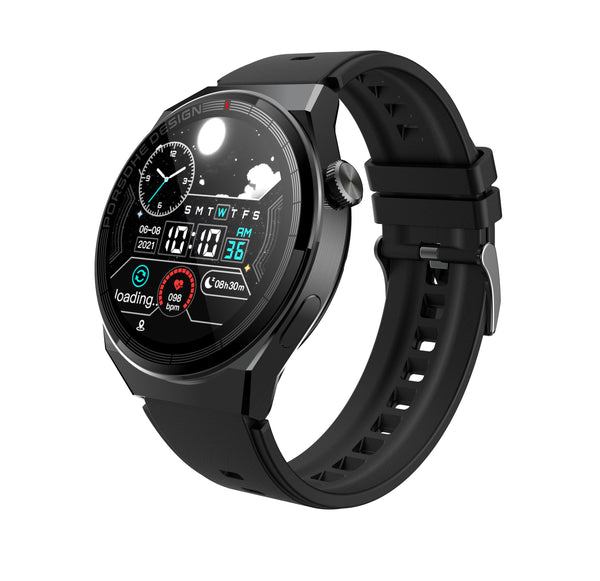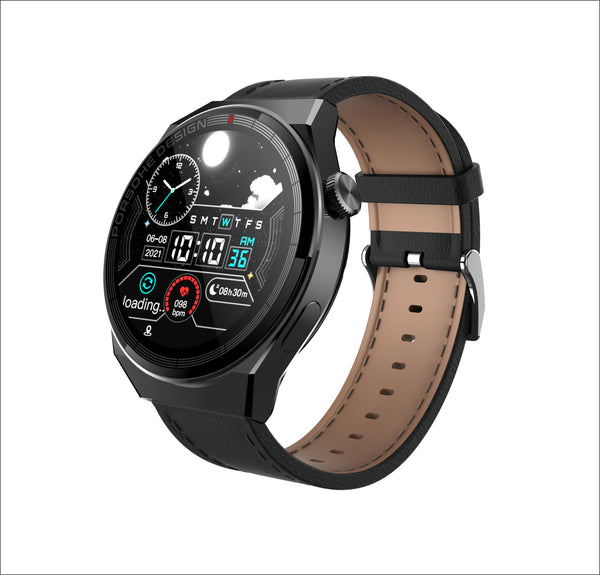Best Running Smart Watch
Running is an aerobic exercise that is very beneficial to the body. As long as you can persist and exercise step by step, it will definitely bring benefits to your body.
Appropriate nutritional supplements before running can increase energy for the body, help to achieve better sports performance, and also help the body recover faster after running.
Incorrect eating habits before running will affect the effect of exercise. Let's learn what to eat before running and which eating habits should be avoided.
What you eat before a run depends primarily on two factors: the type of run you plan to run and the time of day you run.
For example, a long run depletes the body's energy reserves more than a fast run; a morning run may mean eating more simple carbohydrates for breakfast.
In order to perform at your best, it is very important to prepare the right food before running.
What to eat before a long run
When running long distances, the muscles use energy from adenosine triphosphate (ATP) as fuel. ATP comes from the body's glycogen stores, which are formed after carbohydrates are consumed, so if you plan to run long distances, you must eat carbohydrates.
Eating some simple carbohydrates before a long run is usually a better choice. Simple carbs are easier to digest and turn into energy faster, while complex carbs take longer to break down. Before a long-distance run, fruit, jam bread, and energy bars are all good choices.
What to eat before running
Fast running is short-term high-intensity exercise, usually lasting no more than 30 minutes, and requires more energy than long-distance running.
Carbohydrates and protein are important for running fast. Carbs keep you energized, and protein helps repair muscle tissue that was broken down during intense workouts. Consider brown rice, chicken or oats, bananas, and peanut butter for carbohydrates and protein.
Caffeine helps speed up, so drink a cup of coffee or an energy drink before your run. Coffee is acidic and can cause an upset stomach if you drink too much, so a cup is fine.
Whether it is a long-distance run or a fast run, it is best to eat about one to two hours before the run. Generally speaking, whether you replenish energy before running or not, the body has enough energy reserves to maintain running for 45 minutes to an hour.
What to eat before morning run
Some runners like to get out of bed and exercise right away, but it's still beneficial to eat something before heading out. When you fall asleep, your body slowly uses up some of its stored glycogen. So, if you skip breakfast, your body may not have enough energy to finish your run. Running on an empty stomach may tire you out faster.
The best foods for morning runners are simple sugary carbohydrates that digest quickly and give your body the much-needed energy. Opt for popcorn or similar sugary snacks, as these are mostly simple carbohydrates that digest quickly. Also consider drinking a protein shake or adding honey to your breakfast drink for a boost of simple carbs.
Ideally, give yourself at least an hour to digest before your run. Even if it's early in the morning, give yourself at least 15 minutes to digest your food before hitting the road.
What not to eat before a run
Avoid high-fat foods before running, as these can delay gastric emptying, the time it takes for food to move from the stomach to the small intestine. This can disrupt normal digestion, prevent your muscles from getting the energy they need to run, and affect your workout performance. Digestive issues can make you feel uncomfortable when you run, feeling bloated because the food in your stomach isn't empty.
Coffee has a laxative effect and can speed up gastrointestinal motility. Some people are sensitive to coffee, so do not drink coffee before running.
Running because of food may cause: abdominal distension, acid reflux, stomach cramps, diarrhea, etc.
Foods may not affect your body right away. To determine what's making you feel sick while running, consider not only what you ate that day, but also what you ate the day before.

The smart watch has a running tracking function, which can record information such as your running route, steps, distance, pace, heart rate and calorie consumption. This data helps you keep track of your running progress and improve your running efficiency. Take your running to the next level!












